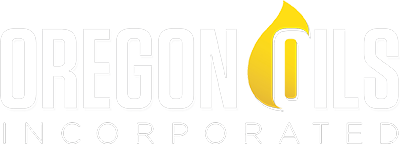
Our Services
Learn more about our company and how our oil recycling services can benefit your establishment.
FOG stands for fats, oils, and grease. In addition to solid food particles, your grease trap collects FOG and helps prevent them from contaminating city sewer lines. Utilizing our grease trap cleaning services helps ensure your establishment complies with city regulations and avoids costly plumbing issues.
Our company accepts many different types of cooking oil, primarily used cooking oil from fryers. We also recycle the following FOG:
- Bacon grease
- Beef tallow
- Peanut oil
- Sunflower seed oil
- Vegetable oil
Please note: We do not accept motor oil or appliance oil.
Our used cooking oil collection service is free. You receive a clean oil receptacle that accommodates your waste oil production, and we pay you for your used cooking oil based on the amount yielded by your establishment’s everyday practices. Once your receptacle is full, we’ll pick it up. Your establishment is added to a collection route with a pickup frequency based on the size of your receptacle.
Once collected, we’ll return your used oil to our facility. Our technicians switch out lids and containers as needed. If a receptacle becomes too dirty, simply call our office and request a replacement. We’ll exchange the lid or the whole container ASAP.
Our software program alerts us to schedule a cleaning each time your grease trap or grease interceptor is due for service. If your collection frequency needs to be updated, call our office, and we’ll enter the change into our system. We keep track of your grease trap frequency and send the proper pump-out reports to city inspectors, so your establishment remains in compliance with current regulations.
If you have an issue with your collection container, pickup schedule, or grease trap, we can help.
There’s oil on the ground around my container.
Call our office immediately. Our technicians will ensure the size of the container is still appropriate for your level of output. We can deliver a larger container or an additional container, if necessary.
In the meantime, clean the affected area and instruct staff not to pour oil into the container. Use kitty litter or sawdust to absorb the oil and sweep up the area. Do not attempt to rinse it away with water — this could worsen the situation.
Call our office immediately. We’ll send a technician to identify the cause and perform a pump out, if necessary. Overflows are usually caused by clogged pipes. Your pump-out frequency may need to be increased. A few tips to help eliminate FOG overflow and other issues include:
- Set up a regular cleaning schedule with Oregon Oils.
- Avoid sweeping food down your drains.
- Keep all non-food materials from going down your drains.
Grease traps naturally emit odors. The smell can seep through the lid of your trap or exit through sink drains. Possible solutions for buildup and odors may include:
- Installing a new gasket (we can perform this service for a small fee)
- Increasing scheduled pick-ups
- Avoiding putting milk products down your sink
Contact Oregon Oils Today
We’re happy to answer any questions you have. Oregon Oils serves clients throughout the Portland, OR Metro Area and Southern WA. To sign up for our services, contact us and we’ll arrange a maintenance schedule for your eligible establishment. We also offer sales appointments and walkthroughs upon request.
